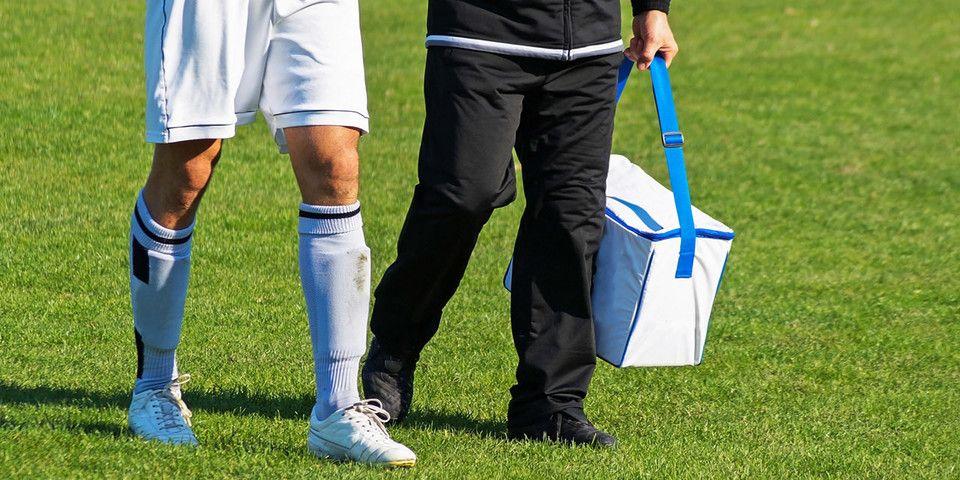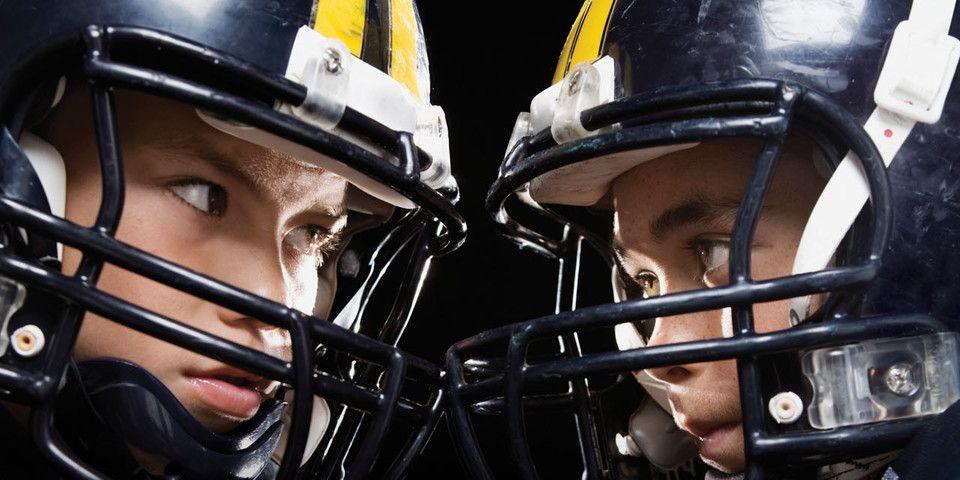We all get a black eye at some point in our lives. Here’s what you can do.
Whether we’re athletes, weekend warriors, or just accident-prone, we’ve all certainly had our fair share of contusions in our lives. Contusion, though it sounds like a scary medical term, is actually just another word for bruise. For lacrosse players, the risk of suffering a head or face contusion is particularly high. Even wearing protective equipment, with sticks and balls whipping around your head, you’re bound to suffer a bruise sooner or later. The question, then, is what are contusions, how should they be treated, and when should you look for more help. With decades of experience, the sports medicine physicians here at Rothman Orthopaedic Institute have some tips to help you gauge whether your head or face contusion is a serious problem or a minor annoyance.
What is a contusion?
A contusion is an injury to the capillaries under the skin that most people refer to as a bruise. Contusions happen when a blow or repeated impacts crush and break these tiny blood vessels, causing some blood to leak out below the skin’s surface. Bruises may appear immediately after an injury or take up to 24 hours to show. Often, an initial contusion will look black, blue, or purple, but it may change color over the course of the healing process. For the first few days, the injury may be sore, especially to the touch.
When we think of a head or face contusion, we often think of the black eye. While unsightly, a black eye is usually no more dangerous than any other bruise. However, because of the soft tissue of the eyes themselves, as well as the proximity to the nose, a black eye may involve more complications than other bruises.
How should I treat a head or face contusion?
Treatment for contusions is fairly simple and starts with ice. Applying a cold pack or a cloth filled with ice to the bruise will help reduce pain and swelling. You can do this for ten minutes at a time, several times a day. If you do have a black eye, make sure that you aren’t putting pressure on the eye itself as you apply your compress.
With most such injuries, elevating the affected area would be recommended, but since your head is already at the top of your body, that particular advice is superfluous. You can, however, take over the counter nonsteroidal anti-inflammatory medications to reduce pain and swelling, as directed by a physician. After the contusion has stabilized, you may want to apply a warm cloth to the area to reduce discomfort.
When should I seek medical help?
While the typical head or face contusion will not require medical attention, complications do sometimes occur. If you see blood in the whites or irises of your eyes, or if you have a nosebleed after getting a black eye, you should consult a doctor. Changes in vision after a head or face injury should also be addressed by a physician. Lumps (hematoma) or excessive pain are also good reasons to talk to your doctor about your symptoms. If the head or face contusion was caused by a particularly hard impact, you should keep an eye out for confusion, irritability, headache, or loss of consciousness that may indicate a concussion.
What if I’m not sure where my bruise came from?
Some people bruise more easily than others. If you find that you bruise excessively, or that you often have large bruises in strange places that you don’t remember getting, you may want to talk to your doctor. Frequent bruising can be caused by a platelet deficiency or abnormality, and your doctor can do tests to see if this is the case.
Lacrosse players have a high risk of bumps and bruises, due to the high contact nature of the sport. If you would like more information about a head or face contusion, or to make an appointment, call us at 1-800-321-9999.
Related Specialties
Related Physicians
Related Conditions
Related Treatments
Related Programs
-

Athletic Training- Sport Medicine Outreach
Our Field Athletic Trainers provide direct sports medicine care to youth, high school, college and professional athletes. Rothman AT’s provide athletic training services throughout Southeastern PA and NJ to interscholastic high schools, colleges, as well as tournaments and special events.Read More -

Sports Concussion Program
Concussion care is a special focus of Rothman's sports medicine program. We've developed the most advanced multi-disciplinary evaluation and treatment techniques based on research done by the concussion specialists here at Rothman Orthopaedic Institute.Read More





